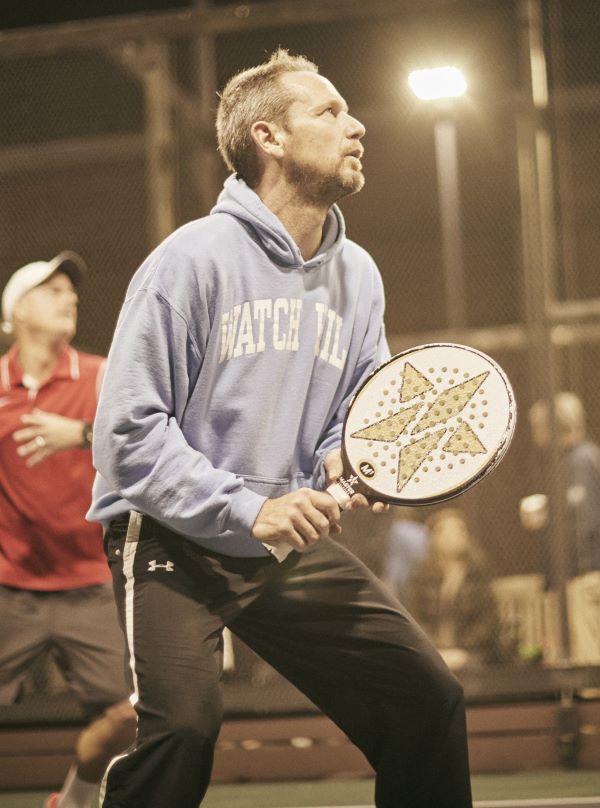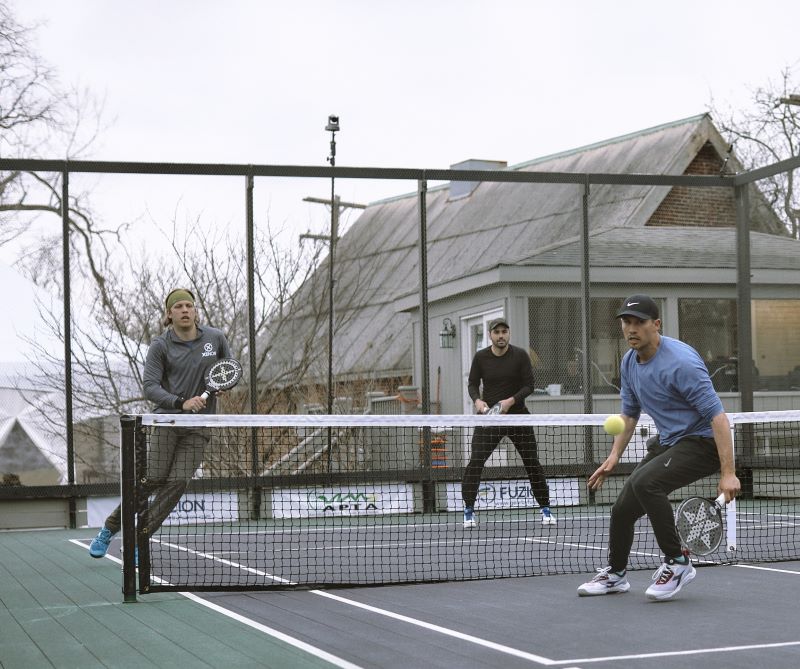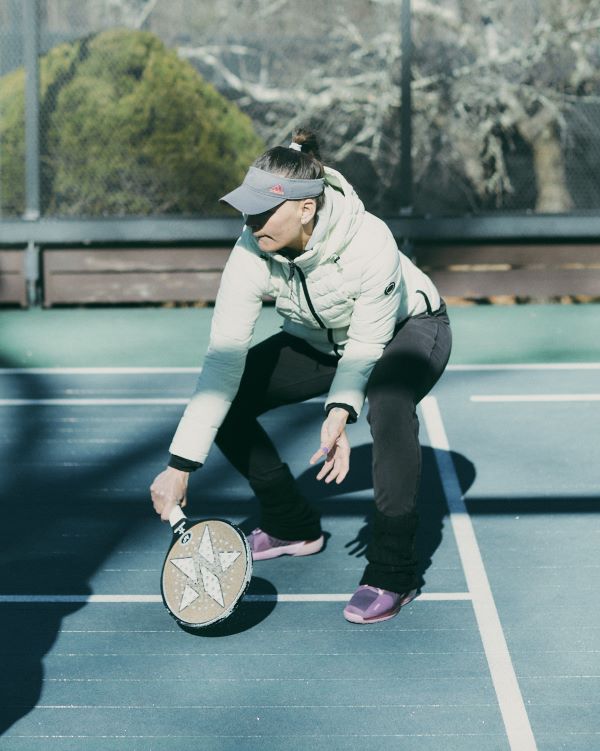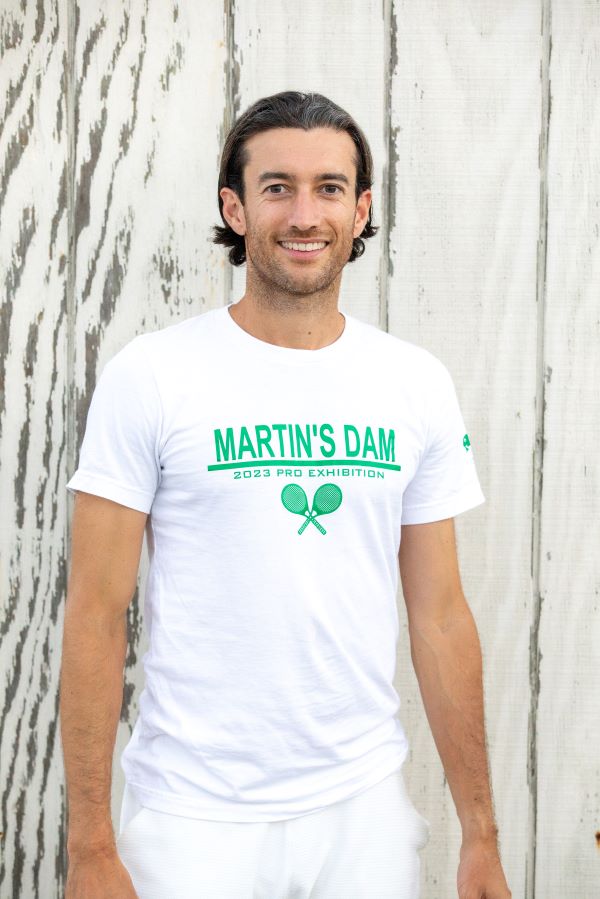NEWS
The Art of Paddle - Part 2

In this second of 4 articles, we examine Sun Tzu’s The Art of War and focus on making calculations, knowing yourself, your enemy, your environment, defending first, and learning about superabundance relevant to platform tennis competition.
The Art of War is a lasting literary work laying out Sun Tzu’s principles behind a successful military campaign. Let’s see what principles we can use and what action we can take to better compete on the paddle court.
Make Calculations

“The general who wins a battle makes many calculations in his temple before the battle is fought. The general who loses a battle makes but few calculations beforehand. Many calculations lead to victory, and few calculations to defeat.”
Platform tennis is a thoughtful game. The points are long, and due to the relative evenness between teams, it can take multiple shots to generate even a glimpse of weakness or error from your opponent. Thus, it requires thought, aka calculations, as to how to go about slowly breaking down your counterpart.
Action Step: Go into your matches having calculated how the match will go in your mind. Think about how you want to play, what aspects of your game match up well with your opponents, and areas of strength/weakness that you can exploit. Most importantly, understand the areas of your opponents' attacks such that you can be confident in your defenses to neutralize them and compete in the battle as long as it takes.
Know Yourself, Your Enemy, Your Environment
“If you know the enemy and know yourself, you need not fear the result of a hundred battles. If you know yourself but not the enemy, for every victory gained you will also suffer defeat. If you know neither the enemy nor yourself, you will succumb in every battle.”
Make sure you do your homework on these three elements before the match begins.
1) Know yourself. How your body is feeling, what shots are working well, what adjustments have you worked on from previous matches, what your strengths are that successfully disrupt the opposition, and what your weaker areas are and how they have been historically exploited.
2) Know your opponent. Learn as much beforehand and in warmup about their “attacking” shots, and their areas of weakness are, such as movement, emotional instability, or technique.
3) Know the environment. Every court is different—due to screen tension, court grittiness, etc., and every day is different, temperature-wise and element-wise, from windy to sunny to rainy. You must know how these environmental factors will affect the match and especially affect you.
Action Step: Challenge yourself to think about these three elements before every match and discern how each brings a unique factor to the equation. If your opponent doesn't move well, think about hard overheads off the screen to challenge their footwork. If the opponent doesn’t drive well off the deck, think about soft overheads to bait them into poor drives. If the weather is warm, consider more spin on overheads and drives, as the ball will bite more on both the paddle and court surface.
Defense First, Offense Second 
“The good fighters of old first put themselves beyond the possibility of defeat, and then waited for an opportunity of defeating the enemy. To secure ourselves against defeat lies in our own hands, but the opportunity of defeating the enemy is provided by the enemy himself.”
“Thus the good fighter is able to secure himself against defeat, but cannot make certain of defeating the enemy. Hence the saying: ‘One may know how to conquer without being able to do it.”
To be a good player, you must first figure out how not to be defeated. Seems obvious, but at heart, it means that you have to first learn how to withstand and neutralize opponents' offense (stay in the point) without giving up errors before you learn how to attack them.
We can secure ourselves against attack, with good defense, but only our opponent can open up the door to being attacked, through poor choices or poor execution. As every great athlete understands, we can never be sure of victory, as we can’t control the result; but knowing that you can secure yourself against defeat gives you the greatest chance of success.
Action Step: Think about how you may need to sure up your defenses in your paddle game. As I talk about extensively in my book Paddle Principles (see below for more information), the three defensive shots every paddle player needs in their arsenal are: The lob, the volley, and the soft push overhead. These shots allow you to compete against any opponent; they ensure you can stay in the point and neutralize attacks. They may not win you many points, but that's not their purpose. Their purpose is to allow you to compete in the battle. Once you are competing, opponents are easily capable of losing enough points on their own to secure your success, and you can use your intellect to figure out where the vulnerabilities of your opponents might be should you wish to attack.
Superabundance
“Security against defeat implies defensive tactics; ability to defeat the enemy means taking the offensive. Standing on the defensive indicates insufficient strength; attacking, a superabundance of strength.”
This is such an important point for all paddle players to learn, especially the higher level you get, as at the advanced levels, all opponents have great defensive abilities. This key learning is that security from defeat lies in your defensive tactics. However your ability to defeat your opponent means taking the offensive, and to do this you need a superabundance of strength. What this means for paddle players is that if you wish to attempt to defeat your opponent, you must have a clear—super—advantage whenever you bring offensive and aggressive shots.
Action Step: Pay attention to when you are bringing offense to attack your opponent and objectively evaluate on each shot whether there was sufficient superabundance of strength to warrant such an attack.
Oliver Jones is the Director of Paddle at Martin’s Dam Swim and Tennis Club in Wayne, PA. He ranked in the Top 50 teams in 2023. He is the author of Paddle Principles: A Beginner to Advanced Guide to Winning Paddle. If you would like to purchase it, contact him directly at o.d.j.jones@gmail.com.
Part 3 coming soon.


